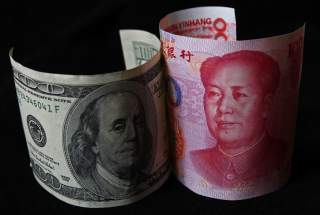The Gloves Are Off: The U.S.-China Trade War Is Coming for Big Business
The global business world is now being reconfigured by a decoupling between its two largest economies—the United States and China—after decades of interdependence. This will impact practically every country where global businesses are active.
1. Any company doing business outside of its own borders must reassess where and what they are doing. Companies like Adidas, Nike and Walmart are rethinking their supply chains and reliance on China as a cost-efficient place for production. Makers of agricultural goods, autos, farm machinery and even semiconductors are caught in this. Companies are going to face challenges in shifting their operations to more friendly countries or giving thought to robotics in advanced economies where labor costs are higher.
2. The global decoupling does not mean that business immediately goes back to the home country. China is losing its attraction as the workshop of the world, but Bangladesh, Indonesia, Malaysia, Thailand, Vietnam and Mexico are set to benefit (some have already lured away footwear and textile business from China).
3. The economic battlefields between the United States and China started with technology and will only intensify in that sector. The U.S. action against Huawei was a major blow to that company (it could be taking a $30 billion hit from the U.S. clampdown). It also signaled that the gloves are off for technology in general, telecommunications and AI in particular.
4. There is a strong possibility that the next area of Sino-American friction is energy. The United States and China already have squared off over Venezuela, the holder of some of the world’s largest proven reserves. If oil prices rise due to an extended period of geopolitical ructions in the Persian Gulf, pressure could mount on China’s balance of payments. Considering the growing constraints on China’s exports, a bad turn of geopolitical events that pushes up oil and natural gas prices could hurt China’s current account balance of payments, which has been in surplus for a lengthy period.
5. Other parts of the Chinese and U.S. economies are open to weaponization. As of June 2019, U.S. Treasuries held by China remain above $1.1 trillion and Beijing is Washington’s second largest foreign creditor (behind Japan). However, if the relationship greatly deteriorates, the United States might have to find other buyers of its debt. This works as long as the dollar remains the global currency. If China and its allies push to knock the dollar out as the world’s main currency of exchange, one pressure point on the United States would be its rising mountain of public sector debt. Any disruption with the U.S. Treasury bond market would have global implications.
6. Cyberwarfare is set to increase. The United States and China (and Russia, Israel and Iran) have been at this for a number of years. The size and scope of Chinese attacks on the United States, which some regard as acts of war, are likely to escalate. In 2018, Chinese attacks on telecommunications and the hospitality sector increased. According to FireEye, Chinese hackers are thought to have been behind major strikes on Boeing, General Electric Aviation, and T-Mobile. With trade war tensions up, look for 2019 to see more of the same.
7. Global coordination of economic policy could be seriously undermined. One of the important factors that kept the Great Recession in 2008–09 from becoming a Great Depression like the 1930s was the ability of the G20 to coordinate economic policy to find a path out of the crisis. In a world of hardened blocs (driven by economic nationalism), this type of policy coordination is likely to be more difficult to achieve, even among supposed allies. This could be a big issue if central banks become embroiled in competitive monetary loosening, some of which has already occurred.
It was Otto von Bismarck, the key force behind Germany’s unification, who stated, “Only a fool learns from his own mistakes. The wise man learns from the mistakes of others.” The global political economy has been down this road before—the creation of a great dividing line between camps or blocs. This is an action that pulls businesses into one orbit or another. The great era of globalization is over, and the trend is back to a world of competing blocs. While we could see a further slowing in global trade as adjustments are being made, a complete breakdown is not likely. The menus of what is traded between countries is being trimmed, but there are plenty of products and services that each country still needs. Business leaders need to embrace the new paradigm that geopolitical risk is likely to play a more central role in shaping markets in the decade ahead. The old Cold War did have a balance of power and no major war occurred; the trick in the new Cold War is to make certain that it does not turn hot and that cooler heads prevail, allowing some of what was gained from globalization to continue. Challenging days loom ahead, and business leaders need to pay greater attention to what this means to their corporate strategies.
Scott B. MacDonald is chief economist for Smith’s Research and Gradings.
Image: Reuters

